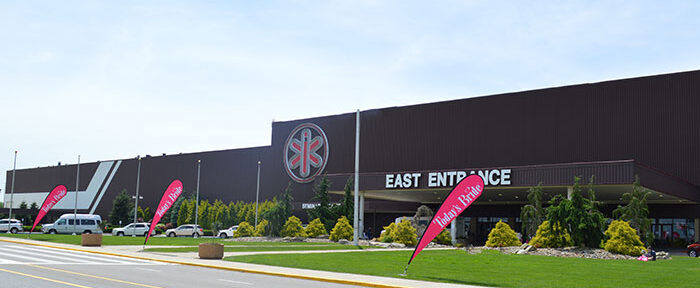Why Doesn’t Anyone Ever Mention They Saw My Ads?
I hear this all the time from local vendors. It’s frustrating, isn’t it? You spend your hard-earned money on advertising and no one ever mentions that they saw it. Is it working, or isn’t it?
Well, my friends, you’ve hit upon one of the great conundrums of marketing. Whether a couple mentions your ad isn’t an indication of whether it’s working or not. It’s only an indication of whether they need to mention it to receive any special benefit or treatment. In other words, if you don’t tell them to mention it and why it will benefit them to do so, they’re not going to. As a matter of fact, even telling a couple to mention your ad isn’t likely to work unless there’s something in it for them.
Just saying, “Tell us you saw our ad in…” isn’t going to work because there’s no consequence, positive or negative, attached to it. How often do you tell businesses you saw their ad when there is no incentive to do so? It’s not a strong call to action if there’s no benefit to the consumer. Sure, you as the business want to know, but they don’t care about anything but planning their wedding.
Sales tracking is important to the business, not to the consumer. Why should it be? Yes, as I said, it’s frustrating, but if you really want to know if your ads are working, then you have to do the heavy lifting. They’re not going to volunteer it.
So how can you know if your ads are working? Here are three ideas for effectively tracking your ads. This applies to print, online, social media, direct mail, radio, TV, or wherever you’re advertising:
1) Since couples are most likely to call you before they come in, the best time to track is when they first email or call you, not when they come into your business. Once they come in, all they’ll care about is their needs, so don’t expect your in-person marketing surveys to yield accurate results. How would you feel if you went into a store and the first thing you had to do was take a test? I’ve asked couples, and that’s the way it feels to them. If you were the customer, you wouldn’t like it; don’t expect that they will.
Very important tip: Ask better questions. You get the answers to the question you ask, so on your contact form ask: “How did you get to our website today?” instead of “How did you hear about us?” or “Who referred you to us?” Asking how they heard about you makes them think of the first time they heard you existed, but that didn’t make them visit your website today…now…at 2 p.m. on a Tuesday (from work). You want to know what flipped the switch on that lightbulb over their heads. You want to know what triggered them to call you NOW. Sure, they may have heard about you before, been referred to you, even seen your ads multiple times, but something made them want to visit your site or call you now. Ask better questions and you’ll get a better answers.
If you’re running ads in the right places and you still think most of your business is coming from referrals, you may be asking the wrong questions or influencing their answers. If you really think your business is all from referrals, would you be willing to unlist your phone number, take the sign off the building, and stop all forms of advertising and marketing? Do you really think you wouldn’t see any drop? Since most couples get more than one referral, your advertising supports the referrals they gets and validates them. They don’t care if you need to advertise; they want to see your ad and show it off to their friends to validate their purchase decisions.
2) Use a direct response vehicle, a coupon, or special offer that they have to bring in order to receive the value. Make sure there’s an expiration date not too far out to increase the sense of urgency. I know that most of you don’t like the idea of coupons or offers, but they call these “direct response vehicles” for a reason. You’ll know if you get them back, they worked, and if you don’t, they didn’t. Of course, if they don’t come back, it could be indicative of other problems (weak, bad or irrelevant offer, problem with delivery of the message, too long of an expiration date, etc.). If you’re going this route, the less strings attached to the offer, generally, the better the response. This isn’t for everyone, but it’s very effective for tracking.
3) Use a different phone number, email address, or URL in each ad. This is an old Yellow Pages trick. If you can track how many phone calls come in to the phone number, or how many emails to that specific email address, you can see how many calls you got from that ad. You can get different toll-free numbers, and your web master can set you up with multiple email addresses and URLs. You see these all the time on infomercials on TV. The department number you see in the ad or phone extension indicates to them where you saw their infomercial.
A twist on this is a marketing trick a limo customer of mine used many years ago. He would put a call to action in his ad, something like this: “Call Charlie today to discuss your wedding transportation needs, 555-1234.” The trick was that there was no one there named “Charlie.” He’d simply change the name in each ad, and when someone called and asked for “Charlie,” “Phil,” “Tony,” or “Barry,” he’d know which ad they were calling from. He didn’t have to ask. Then he’d note which name they asked for and simply say, “Charlie just stepped out, but my name is Dave and I can help you.”
Was it sneaky? A little, but it didn’t hurt anyone as the customer always got to talk to someone about what they needed, and he got the information he needed unobtrusively.
Lastly, everyone who has contact with your customers has to be on board if you’re going to accurately track your marketing efforts. They have to understand why it’s so important to get good feedback. If they don’t, they’ll quickly derail your efforts and you’ll be back where you started…or worse, you’ll think you’re getting good feedback and you’re not. So, don’t just tell them what to do; tell them why and why it’s so important. Get them to buy in to the effort.
So, how do you really know if your ads are working? If business is better when you run them than when you don’t. It can be as simple as that.
 ALAN BERG, CSP
ALAN BERG, CSP
If you’d like to find out how Alan can work with you and your team, whether you’re a team of one, or dozens, reach out to him. He’s worked with businesses both virtually (phone/internet) as well as on-site at venues, bridal salons, entertainment companies, and more. To find out how he can help you, with sales training or a website review, email [email protected] call 732.422.6362, international inquiries 001 732 422 6362 or visit his site www.AlanBerg.com









